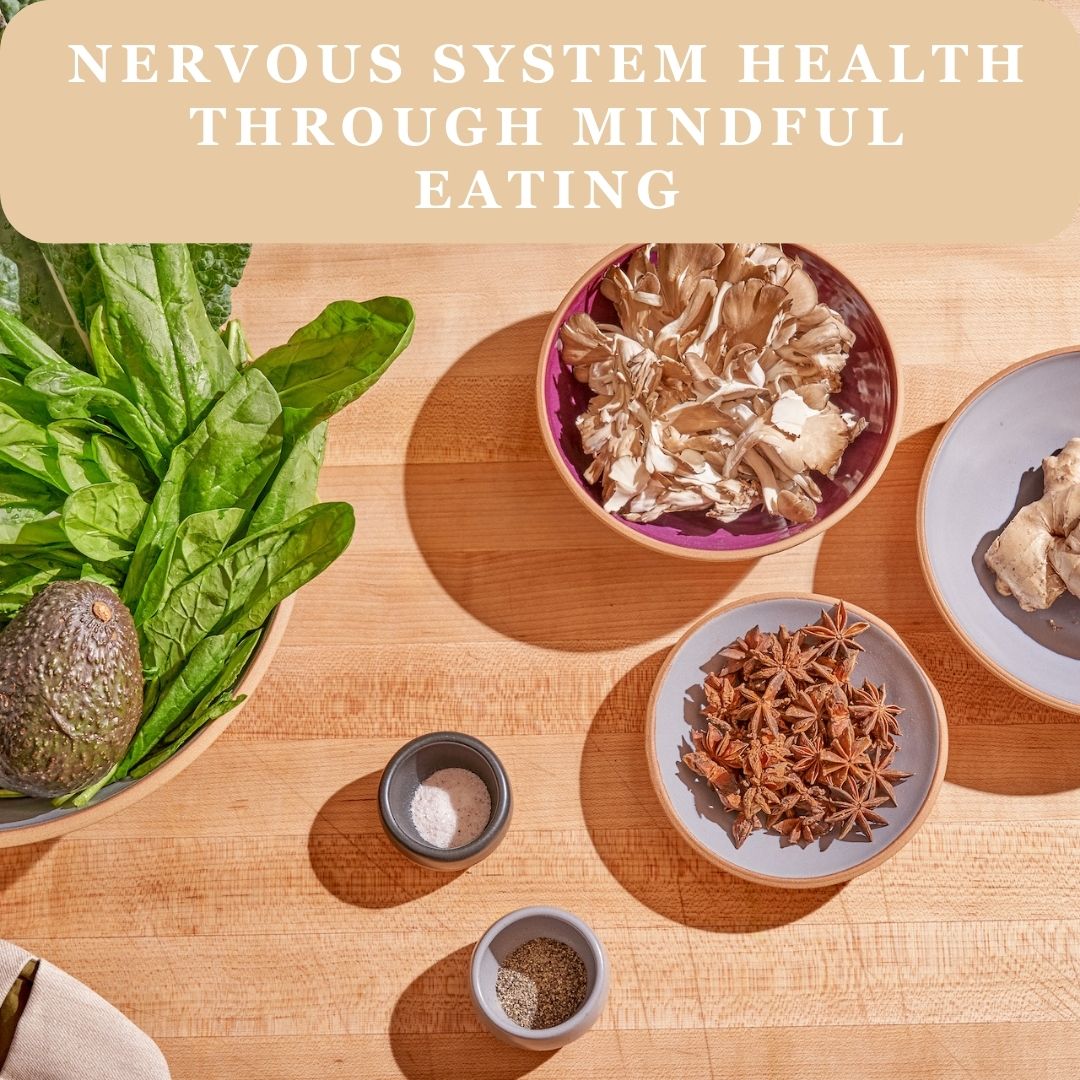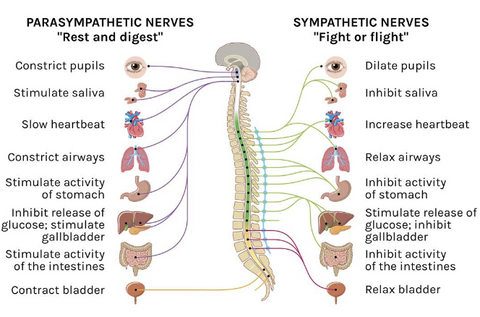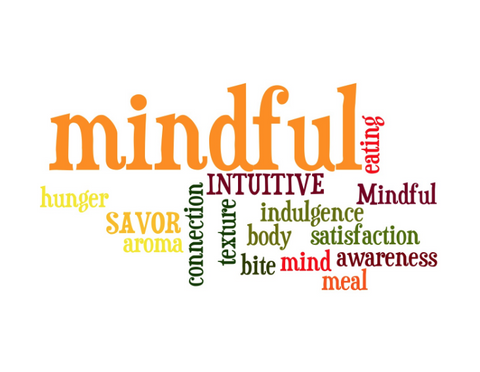
Mindful Eating: A Pathway to Nervous System Health | Organic Pharmer
Share
Written by Stephanie Woods
Connecting to your Nervous System through Nutrition
The nervous system is responsible for so much of the day to day operations of the body, including synchronizing our bodily functions of movement, breath, heart rate, and even hormonal processes. Obviously taking care of your nervous system is very important, but what does a healthy nervous system look like, and how can we go about supporting it? We’ll talk about how to answer this question, and about how mindful eating can influence your health. We are proponents for using food as medicine and that starts with how you approach eating. Our lives are full of daily stress and understanding how to counterbalance stress with a healthy diet can have tremendous benefits to our longevity.
Nervous system regulation
A regulated nervous system is a healthy nervous system contributing positively to our overall health. When this system is well-regulated, we can better bounce back from stressors throughout the day. When it is dysregulated, a stressful interaction or event can send us into a spiral that might have us turning to negative coping mechanisms like drinking extra caffeine or sugar, eating mindlessly to cover up and avoid uncomfortable feelings, and eating junk food which can cause inflammation. Understanding how our bodies function, identifying our coping mechanisms, and breaking free from the pattern are tough things to do and take small steps. Mindful eating is one small step toward facilitating a healthy nervous system and by in large promoting our healthful longevity. This mind-body connection is biologically driven from the vagus nerve connecting our brain and gut. Understanding the hungry brain and hungry gut coupled with practicing mindful and intuitive eating techniques we can make major strides toward facilitating a healthy existence.
Parasympathetic vs. Sympathetic Activation

Mindfulness practices are a great way to move toward a regulated nervous system, especially when we are on alert and are overwhelmed or stressed. Stressors can put the body into fight or flight mode, or what’s called sympathetic nervous system activation, in which adrenaline quickly puts us into an alert and fearful state. It’s important after experiencing unwanted stress to balance the nervous system through any activity that feels safe or relaxing, to assist the body in preventing and healing adrenal fatigue. Things like deep breathing, meditation, or yoga practices can help to calm the nervous system and remind the body that it is safe. Activities like dancing, singing, or even just a heart-warming conversation with a friend can also help to regulate the nervous system by activating the opposite arm of the nervous system, the parasympathetic nervous system. This system carries out an important role in healing, as it is active when our body is in “rest and digest” mode. When the parasympathetic nervous system is active, important physiological changes occur like lowered blood pressure, lowered breathing and heart rate, and increased digestion.
Mindful eating

So a healthy nervous system ensures proper digestion, which is of the utmost importance for overall health and well-being. And certainly (if you’re on this website you know that) eating a whole foods, plant-based diet, free of processed foods is imperative for health. But, looking at the nervous system, we can see that it’s not only what we eat that impacts our health, but how we eat it. Being free of processed foods certainly promotes brain health, but there can be other factors that are contributing to the activation of our sympathetic nervous system, such as stress around eating.
Do you remember what you ate for breakfast today? Chances are you probably do, but do you remember what it felt like to eat that breakfast? What were the smells you encountered when preparing the meal? Do you recall the texture of it, the various flavors? Did you have any feelings that came up while you were eating your breakfast?
All of these questions illustrate the process of mindful eating, which is essentially slowing down and paying acute attention to the details of the experience of eating, all with a non-judgmental attitude. Why is this an important practice? Studies have shown there are many benefits of mindful eating, one such benefit is the potential to help change our eating habits for the better, including in patients with diabetes (type 2). Taking the time to experience the process of eating more fully puts us in touch with our own bodies and metabolism. Making it easier to identify why we reach for certain foods and the space to choose healthier items which in turn can promote healthy nutrition to assist in healing chronic disease. Studies have even shown that this practice can help with maintaining a healthy weight as it can lead to more satisfaction from our meals and feeling fuller sooner, or just being more aware of the sensation of fullness.
Let’s not forget the part about non-judgment. It’s easy when we’re stressed to reach for the sugary, “unhealthy” snack. But if we do so in a way that’s mindful, where we can actually enjoy that snack instead of judging or being harsh with ourselves about it, there’s an opportunity to stay in touch with our nervous systems, our digestion and our bodies as a whole. Maybe during this process we notice that we don’t even enjoy the taste of this processed food that much, or that in fact it increases our anxiety levels from all the sugar. Or maybe we just enjoy it and go about our day, and the next time we encounter the snack it doesn’t seem appealing since we just had one the other day and it was satisfying. Whatever the case, a great mindful eating technique is the process of connecting to the food we’re eating, without judgment, which can have the power to transform our relationship with food in a positive way, even if it's just giving us more information about our relationship with food.
So the next time you are reaching for a snack or preparing a meal, maybe take a moment to put down your phone, take a deep breath, and try to just be present with yourself while you interact with your food. Get curious about why you reached for a certain food, or ask yourself, is this what my body really wants and needs right now? Don’t forget, no judgment, small steps lead up to large changes when it comes to establishing healthy eating habits. In order to heal ourselves, we need to be kind to ourselves. Asking these questions is a great way to get to know ourselves better, so that we can better understand what our bodies need in order to heal.
